Frankfurt 2023: Sun and Clouds
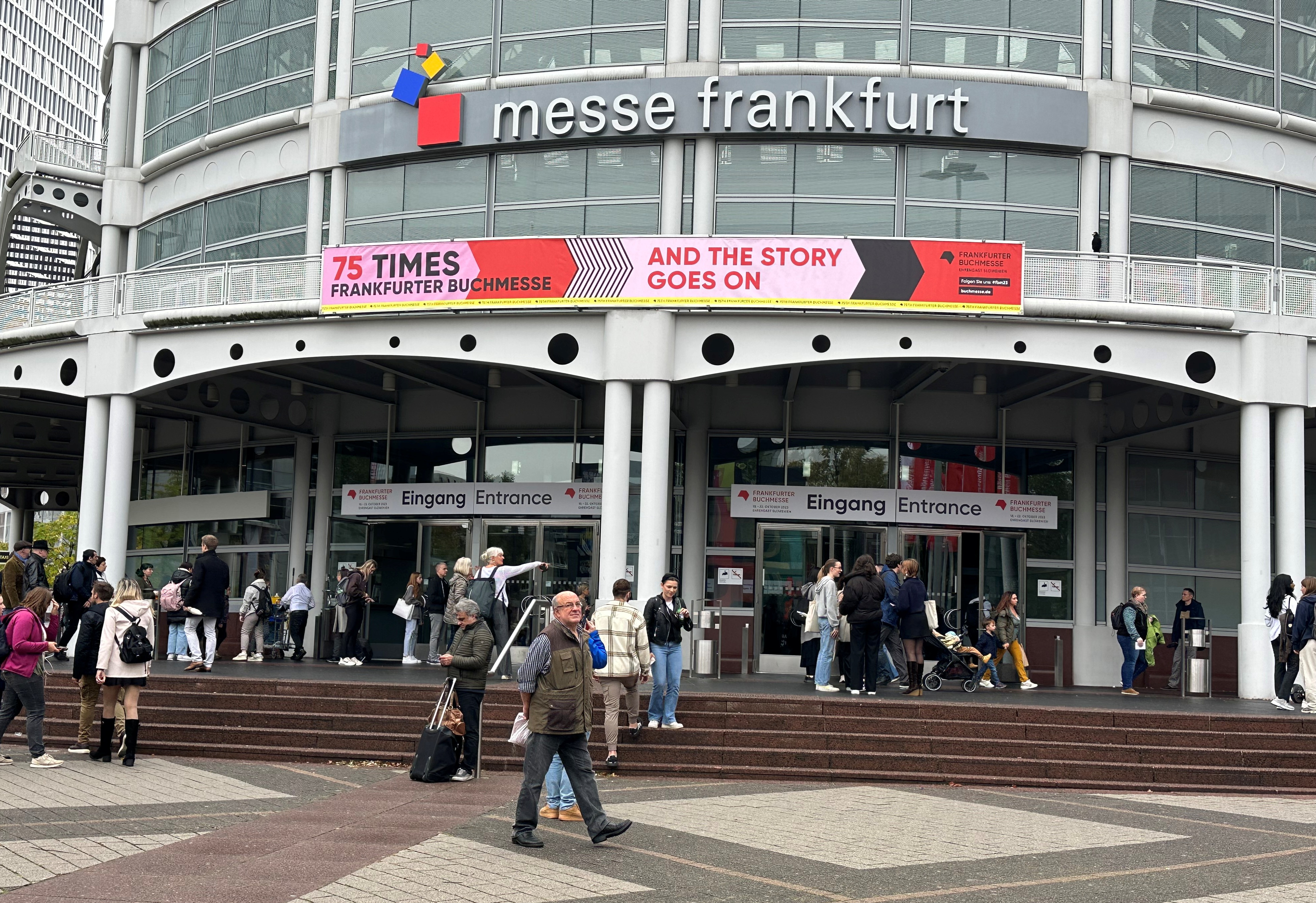 Some 105,000 publishers, agents, booksellers, and others from 130 countries attended the trade part of the Frankfurt Book Fair last week, an increase of 20% over last year and about 70% of the last pre-Covid fair in 2019--a level that fair organizers had hoped to reach. In addition, 110,000 members of the general public attended over the weekend, a 27% jump from last year. The fair celebrated this climb back toward "normalcy" as well as its 75th anniversary.
Some 105,000 publishers, agents, booksellers, and others from 130 countries attended the trade part of the Frankfurt Book Fair last week, an increase of 20% over last year and about 70% of the last pre-Covid fair in 2019--a level that fair organizers had hoped to reach. In addition, 110,000 members of the general public attended over the weekend, a 27% jump from last year. The fair celebrated this climb back toward "normalcy" as well as its 75th anniversary.
Still, there was an air of tension and concern at the fair for a variety of reasons: the situation in the Middle East and the fair's stance toward it; the growing spread around the world of efforts to ban and limit access to books; the need to respond to climate change; and the never-ending challenge of making sure that literature is recognized for its deep cultural and human value.
There were several panels and programs devoted to sustainability in the book industry, including a talk by Gaia Vince, the British author and environmental journalist, at the opening press conference about the connection between climate change and migration movements. And at the 44th International Supply Chain Seminar, updates were given on the Publishing 2030 Accelerator, the effort by a group of publishing staffers to calculate the carbon footprint of an individual printed book.
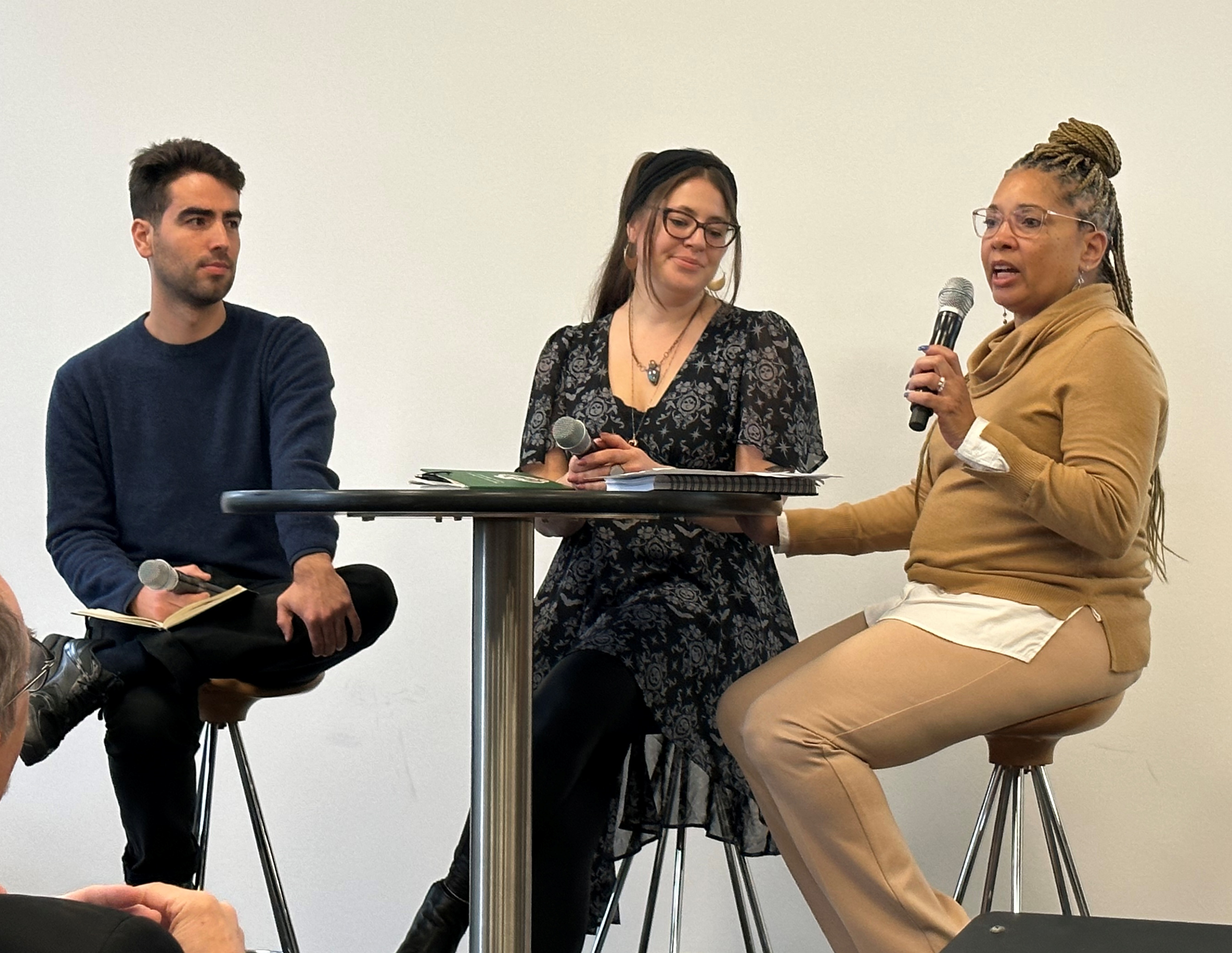 |
|
| 'Banned Books in the U.S.': (from l.) EIBF's Daniel Martín Brennan, Kate Layte, and Cheryl Lee | |
At various panels and meetings, attendees outlined a range of efforts to ban or limit access to books. These include attempts by national governments to control and publish textbooks--Mexico and the Dominican Republic are the most recent examples--attempts to pressure publishers and booksellers to stop or limit the publishing and sale of books critical of the government or highlighting LGBTQ+ characters--India and Hungary--and, sadly, the many efforts to ban books in the U.S., which were discussed by Kate Layte of Papercuts Bookshop, Boston, Mass., and Cheryl Lee of 44th & 3rd Bookseller, Atlanta, Ga., at the European & Independent Booksellers Federation conference.
 |
|
| An empty stand in the section for Arab publishers. | |
The fair's missteps involving the Hamas-Israel war were a surprise, given its usual desire to create a space for the open exchange of a range of ideas and viewpoints. The cancellation of the LiBeratur Prize ceremony, which was to honor Palestinian author Adania Shibli, as well as fair director Juergen Boos's initial statement that the fair "stands with full solidarity on the side of Israel," led several Arab and Muslim exhibitors to cancel participation. (And many Israeli publishers and agents didn't attend the fair for obvious, tragic reasons.) While a second statement from Boos was more nuanced, the damage had been done. Then, at the official opening ceremony, Slovenian philosopher Slavoj Žižek was booed and heckled when he called the decision to cancel the LiBeratur award ceremony "scandalous," adding "we are approaching the paradoxes of cancel culture. All that cancel culture does is exclude those who don't fit your notion of inclusion and diversity."
Among events added at the last minute because of the war was a conversation between Judith Gurewich of Other Press and German literary agent Günter Berg called "The Transmission of Trauma: Publishing Voices from Israel and Palestine."
At several events during the fair, Salman Rushdie, who received the Peace Prize of the German Book Industry yesterday, provided some helpful perspective on the role of literature and the need to allow opinions to be expressed even if one does not agree with them. In his talk yesterday during the prize ceremony, Rushdie advocated: "Counter bad speech with better speech, counter false narratives with better ones, respond to hate with love and don't give up hope that the truth can prevail even in a time of lies."
We'll have more reporting on these subjects in the coming days. --John Mutter





IPC.0204.S3.INDIEPRESSMONTHCONTEST.gif)




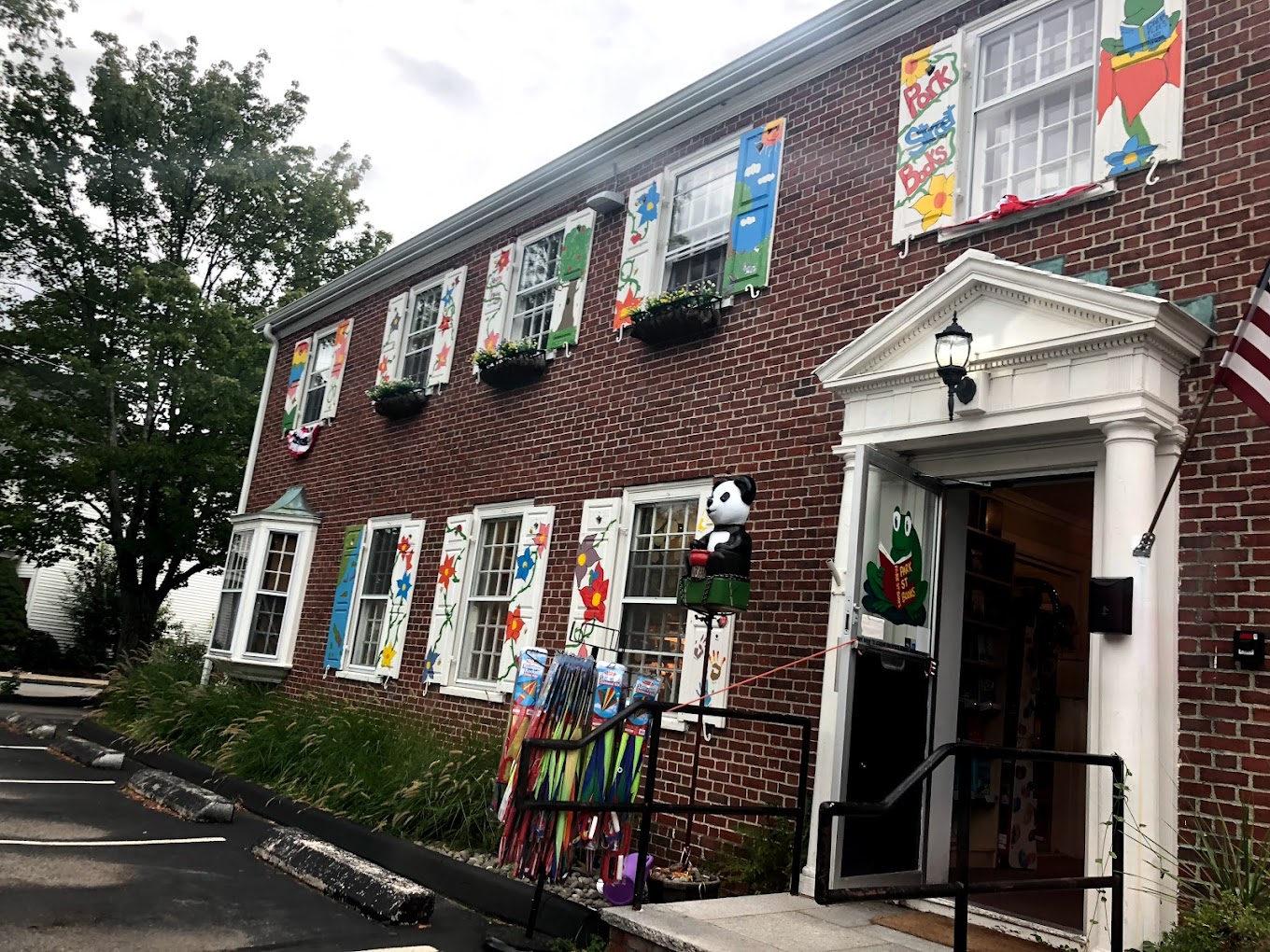

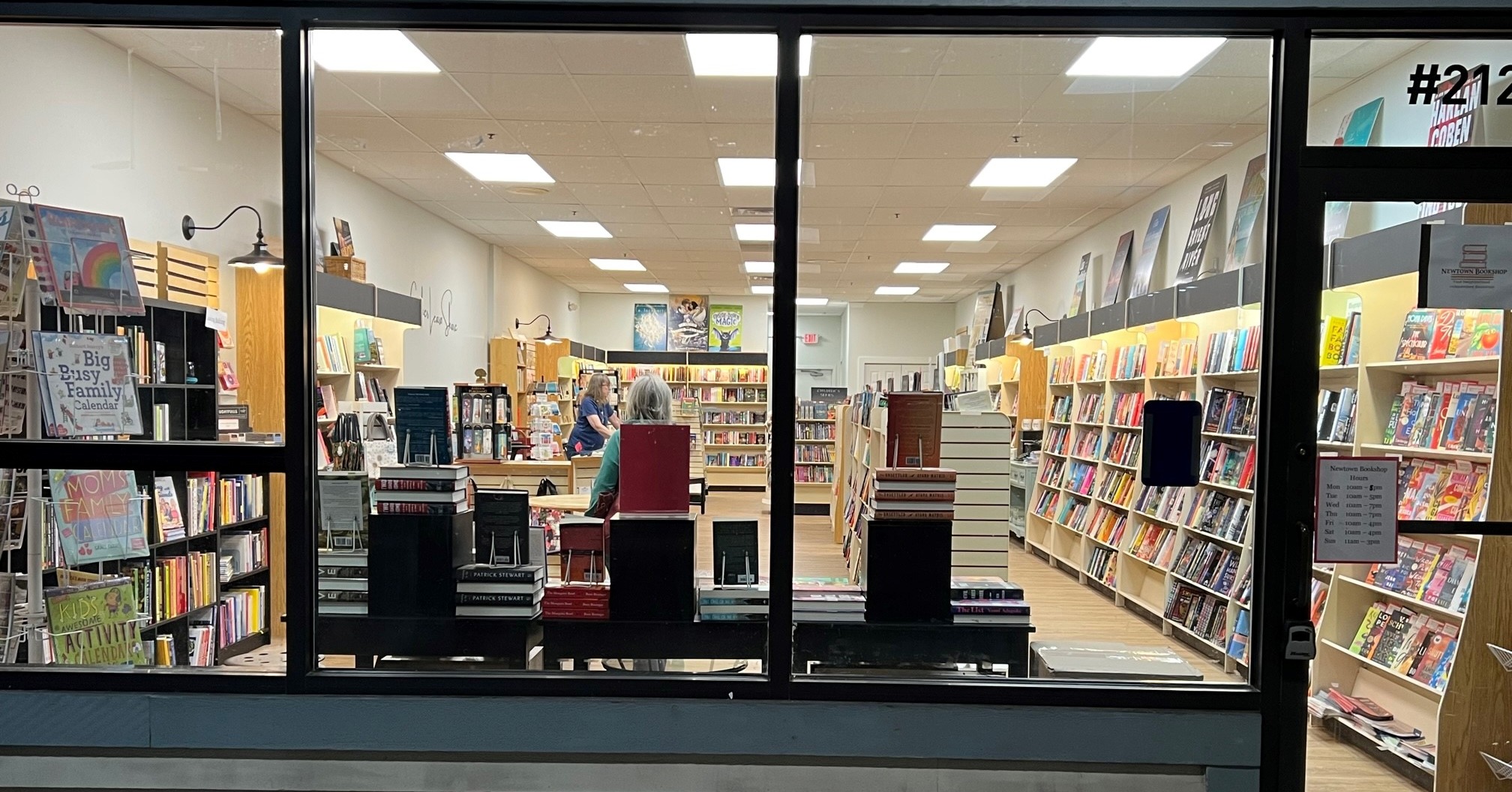

IPC.0211.T4.INDIEPRESSMONTH.gif)
 Shawn Harris and Mac Barnett brought their First Cat in Space tour to
Shawn Harris and Mac Barnett brought their First Cat in Space tour to 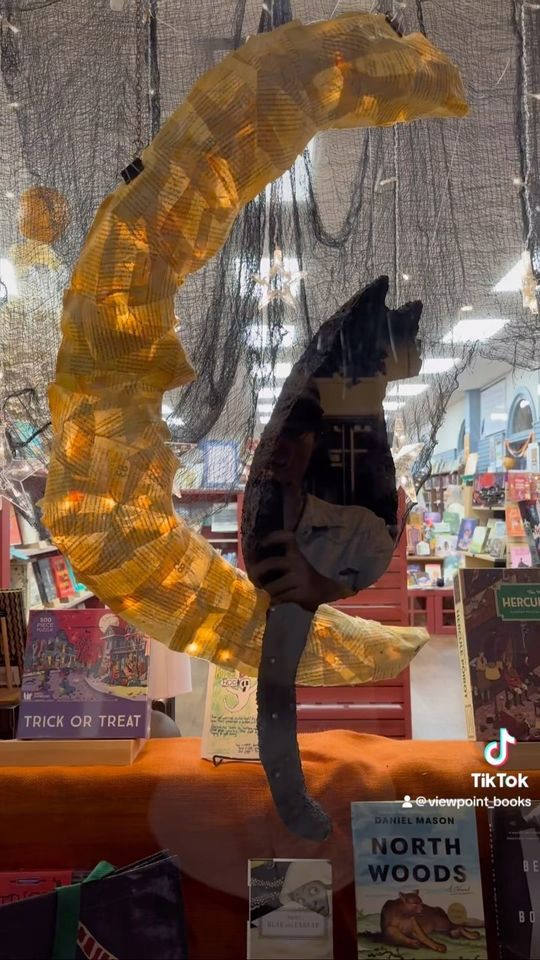
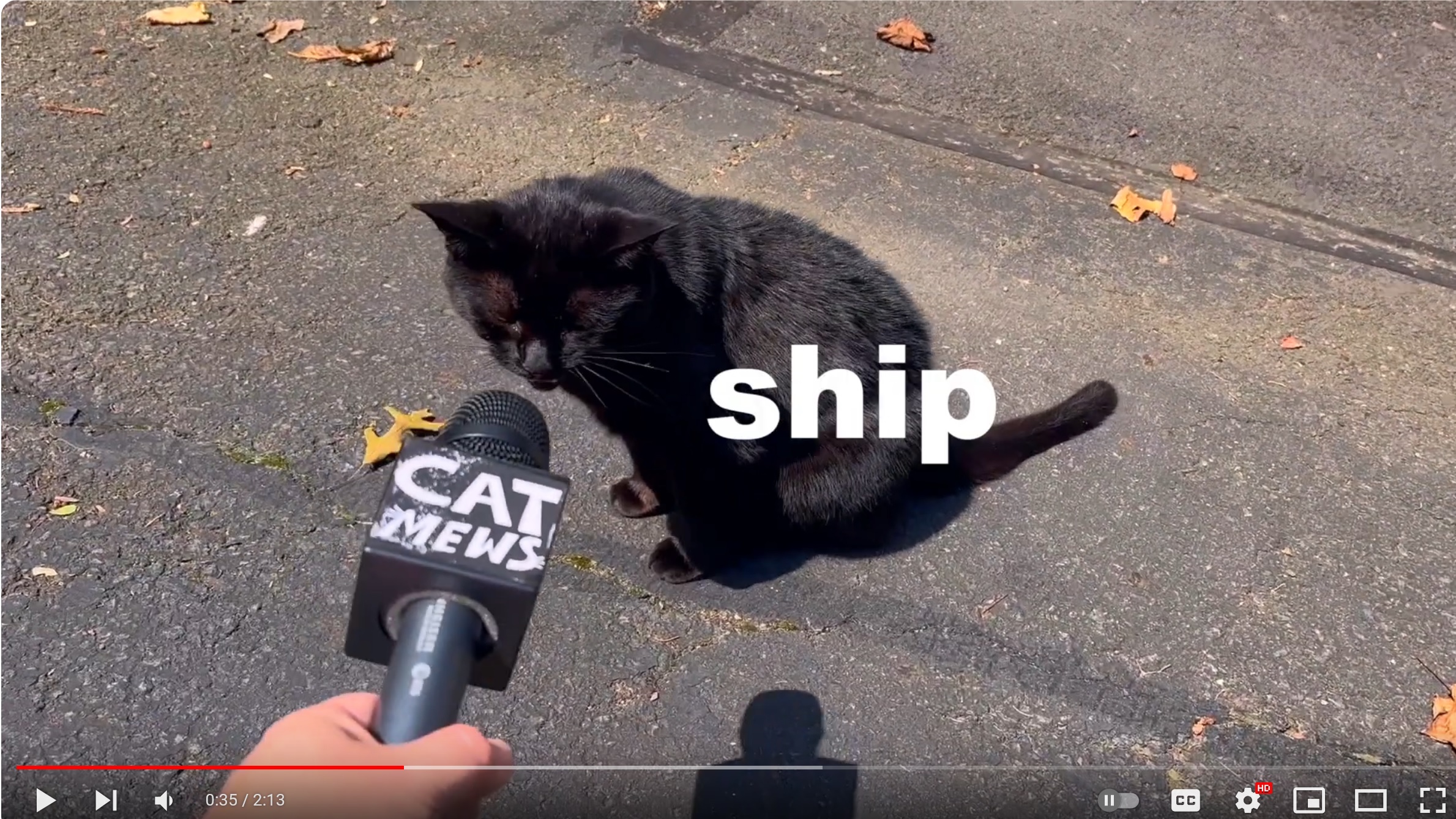 The Adventures of Trim series
The Adventures of Trim series In his debut novel, Michael O'Donnell conjures a frighteningly plausible national emergency that leaves a father and son stranded in New Hampshire's White Mountains as winter approaches. It's a terse, well-paced story that effectively blends the elements of a classic nature adventure tale with a touching portrait of the loving relationship between a parent and child.
In his debut novel, Michael O'Donnell conjures a frighteningly plausible national emergency that leaves a father and son stranded in New Hampshire's White Mountains as winter approaches. It's a terse, well-paced story that effectively blends the elements of a classic nature adventure tale with a touching portrait of the loving relationship between a parent and child.